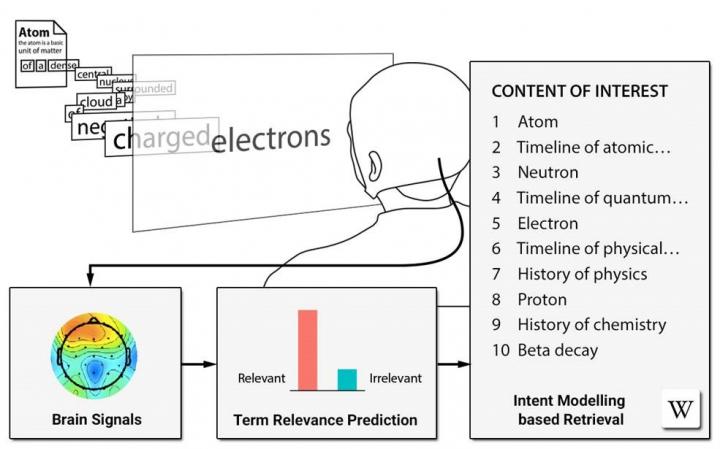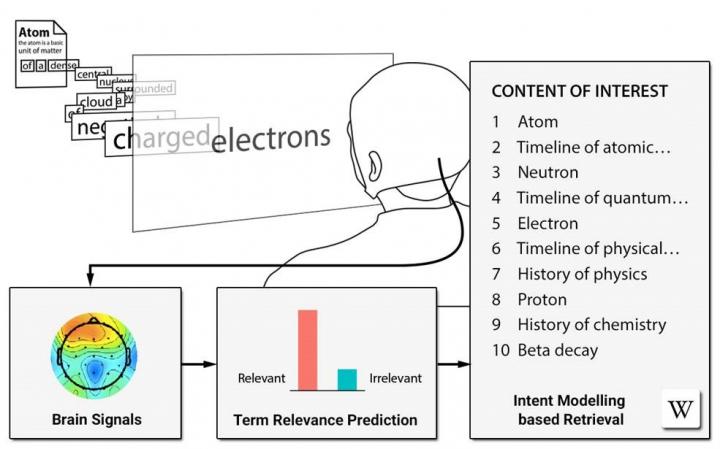
Credit: Khalil Klouche
In a study conducted by the Helsinki Institute for Information Technology (HIIT) and the Centre of Excellence in Computational Inference (COIN), laboratory test subjects read the introductions of Wikipedia articles of their own choice. During the reading session, the test subjects' EEG was recorded, and the readings were then used to model which key words the subjects found interesting.
'The aim was to study if EEG can be used to identify the words relevant to a test subject, to predict a subject's search intentions and to use this information to recommend new relevant and interesting documents to the subject. There are millions of documents in the English Wikipedia, so the recommendation accuracy was studied against this vast but controllable corpus', says HIIT researcher Tuukka Ruotsalo.
Due to the noise in brain signals, machine learning was used for modelling, so that relevance and interest could be identified by learning the EEG responses. With the help of machine learning methods, it was possible to identify informative words, so they were also useful in the information retrieval application.
'Information overload is a part of everyday life, and it is impossible to react to all the information we see. And according to this study, we don't need to; EEG responses measured from brain signals can be used to predict a user's reactions and intent', tells HIIT researcher Manuel Eugster.
Based on the study, brain signals could be used to successfully predict other Wikipedia content that would interest the user.
'Applying the method in real information retrieval situations seems promising based on the research findings. Nowadays, we use a lot of our working time searching for information, and there is much room in making knowledge work more effective, but practical applications still need more work. The main goal of this study was to show that this kind of new thing was possible in the first place', tells Professor at the Department of Computer Science and Director of COIN Samuel Kaski.
'It is possible that, in the future, EEG sensors can be worn comfortably. This way, machines could assist humans by automatically observing, marking and gathering relevant information by monitoring EEG responses', adds Ruotsalo.
###
The study was carried out in cooperation by the Helsinki Institute for Information Technology (HIIT), which is jointly run by Aalto University and the University of Helsinki, and the Centre of Excellence in Computational Inference (COIN). The study has been funded by the EU, the Academy of Finland as a part of the COIN study on machine learning and advanced interfaces, and the Revolution of Knowledge Work project by Tekes.
Further information:
Researcher Tuukka Ruotsalo
Aalto University, University of Helsinki, HIIT
+358 50 566 1400
[email protected]
Professor Samuel Kaski
Aalto University
+358 50 305 8694
[email protected]
Video: https://www.youtube.com/watch?v=3XIJgiLJwbI
HIIT augmented research http://augmentedresearch.hiit.fi/
Tekes Re:Know https://www.reknow.fi/
EU:n MindSee project http://mindsee.eu/
Department of Computer Science http://cs.aalto.fi/en/
HIIT http://www.hiit.fi/
The Centre of Excellence in Computational Inference (COIN) http://research.cs.aalto.fi/coin/
Media Contact
Samuel Kaski
[email protected]
358-503-058-694
@aaltouniversity
http://www.aalto.fi/en/
############
Story Source: Materials provided by Scienmag





